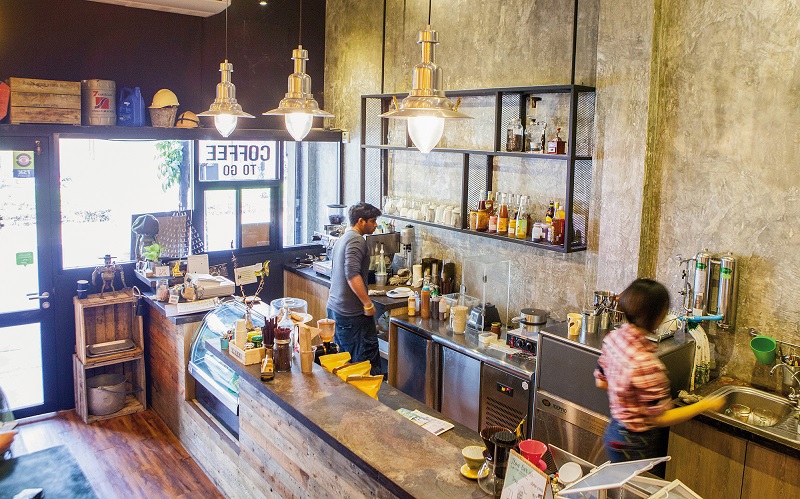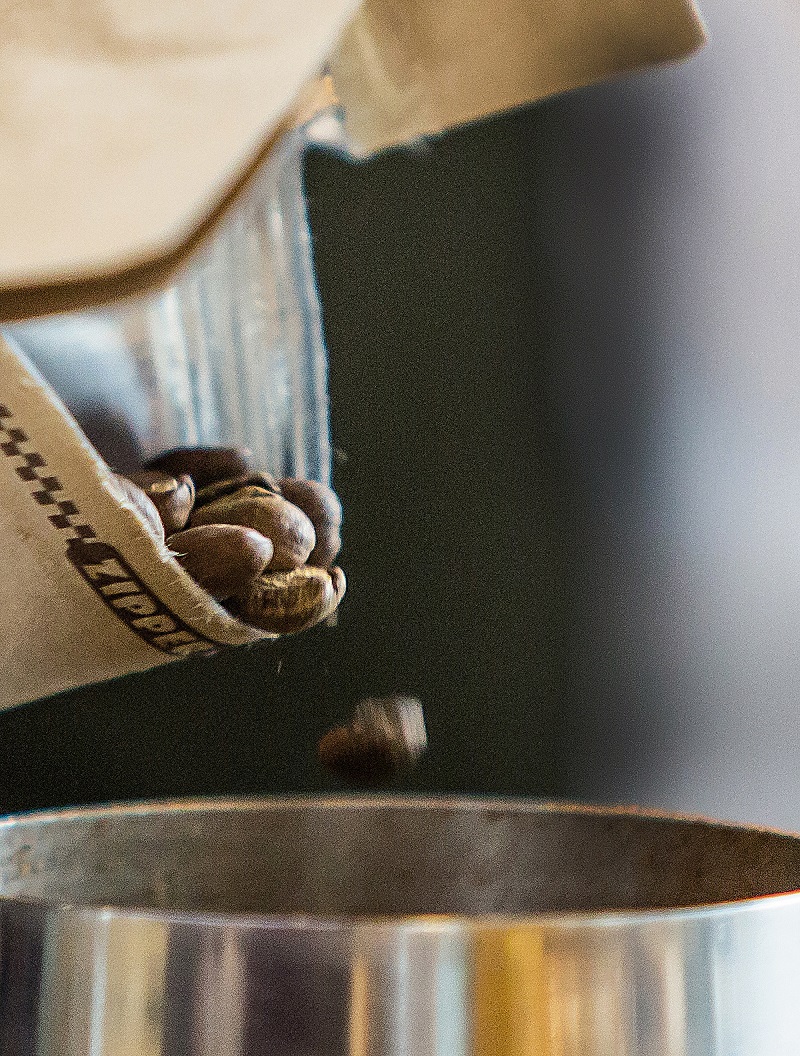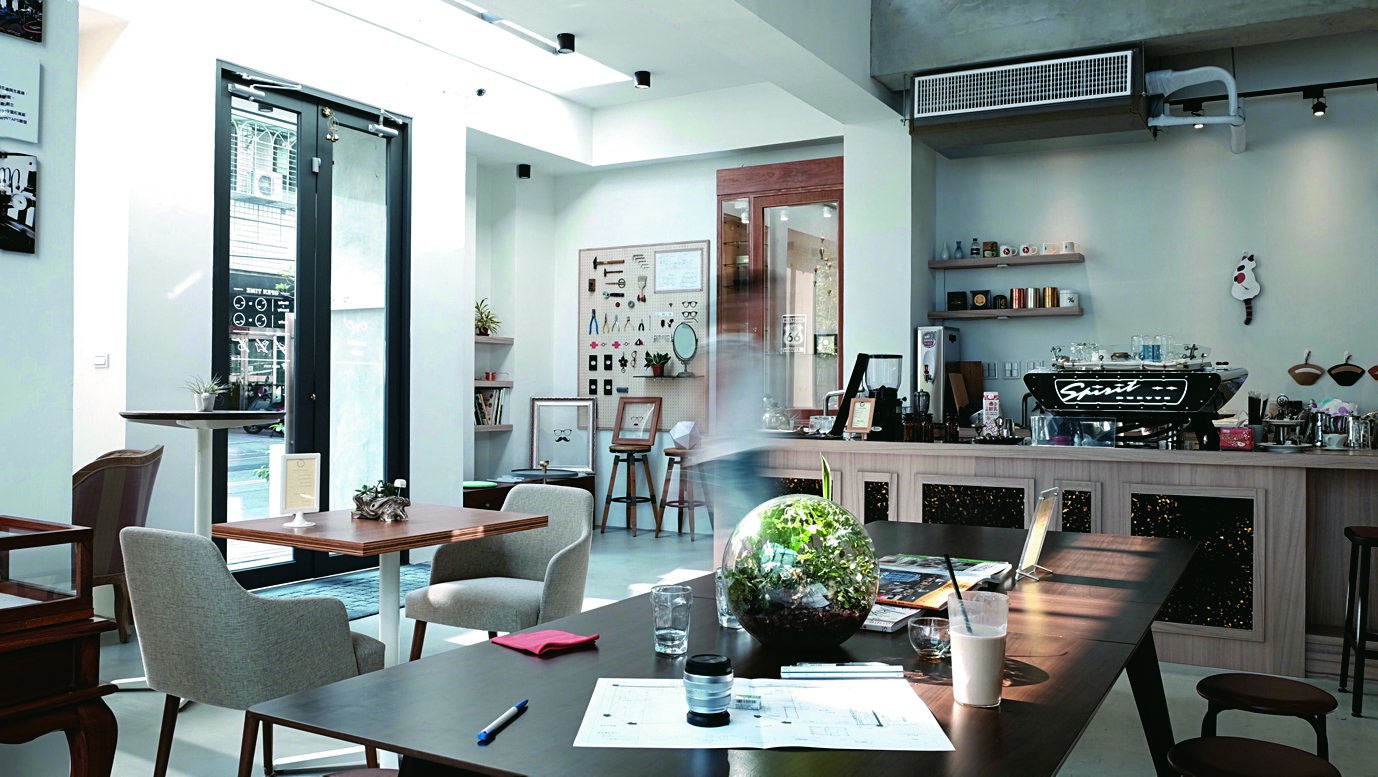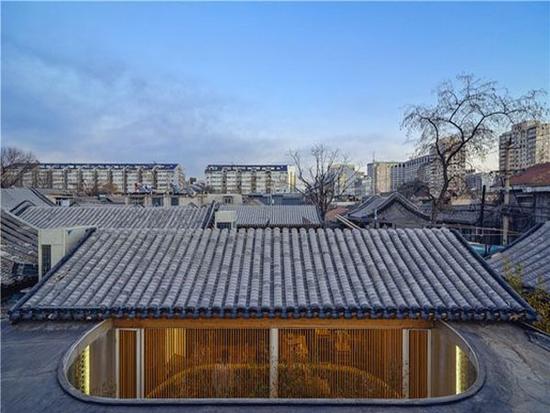[93 Division Coffee] designed by military style and industrial style continues the story of the solitary army in northern Thailand.
For professional baristas, please follow the coffee workshop (Wechat official account cafe_style)

Shen Peishi, from Phatang Village, Chiang Rai Province, northern Thailand, is the third generation of the isolated army in northern Thailand.
The war novels written by Taiwan writer Bo Yang were adapted into the film "Foreign Land" of the same name in 1990 and the documentary "the Mountain of the people of that Mountain" directed by Li Li-hsien, both of which tell the story of this group of "lonely army in northern Thailand," which is nearly withering and gradually forgotten.
On the afternoon of May 18, just before the alarm sounded during the Wan'an exercise in Taipei City, a group of coffee lovers gathered to participate in the "Northern Thailand Coffee sharing meeting." while drinking coffee grown organically from the "93 Division Manor" in northern Thailand, while listening to the story of land identity shared by Shen Peishi, the organizer and the third generation of the isolated army.
Shen Peishi, from Phatang Village, Chiang Rai Province, northern Thailand, is the third generation of the isolated army in northern Thailand.
The 27-year-old always wears a green coat symbolizing a soldier, and her jewelry is a big blue-eyed totem that brings her "luck". Petite, shoulder-haired and fluent in Chinese, she volunteered to work at Lao Chai Cafe near her school in Taiwan, starting with the most basic service, understanding coffee and brewing skills. After returning to Thailand, she opened "93Army Coffee" (93rd Division Coffee Shop) with coffee beans produced in her hometown in Bangkok, using coffee flavor to continue the story of a lonely army in northern Thailand.

"93Army Coffee" is located near the University of Bangkok and the subway station (BTS) "Ekkamai". Tourists push the door with the fragrance of coffee, and the environment is full of military style and industrial style.
The story of the transformation of the isolated army of growing coffee in northern Thailand
"93Army Coffee" is located near the University of Bangkok and the subway station (BTS) "Ekkamai". Tourists push the door with the fragrance of coffee. The environment full of military style and industrial style comes into view. The layout of military relics in the store is like walking into the historical corridor of the isolated army in northern Thailand.
Order a cup of warm coffee by hand, and the promotional materials and arrangements in the store are leading every tourist from senses to senses, from every mouthful of coffee flowing into the taste buds to re-read the fading history of the Kuomintang-Communist Civil War and northern Thailand.
"93 division" is an unfamiliar term to most people nowadays. Even when foreign tourists see the name of the store, they often wonder and raise the volume to ask "93Army?" Whatless! "
The trademark of "93rd Division" Coffee is a portrait of Shen Jiaen, commander of the 93rd Division of the Revolutionary Army of the National Government. During the civil war between the Kuomintang and the Communist Party of China in 1949, some Kuomintang government troops climbed mountains and mountains from Yunnan and retreated all the way to the Thai-Burmese border. It is often known as the "isolated army of northern Thailand". Until 1970, the 93rd Division helped Thai troops to fight against the Communist Party of Thailand (the Communist Party of Thailand) to protect northern Thailand, thus gaining Thai status and staying in northern Thailand. After the end of the war, they changed from soldiers with guns to farmers who ploughed with hoes.

During the civil war between the Kuomintang and the Communist Party of China, the Kuomintang government troops drifted all the way from Yunnan to the Thai-Burmese border and became a solitary army in northern Thailand. (the picture shows the then commander Shen Jiaen (center), Deputy Chief of staff qu Shucheng (left), and Director of political Warfare Lu Dazhan (right), courtesy of Shen Peishi.
Northern Thailand, known as the "Golden Triangle", was once a place for opium poppy cultivation. However, opium poppy not only damaged Thailand's international image, but also affected the soil and water conservation of the local environment. Before 1969, his Majesty King Bhumibol visited northern Thailand and established the Royal Thai Planning Foundation (Thailand Royal Project Foundation).
His Majesty Bhumibol launched the "Royal Project" (Royal Project) and cooperated with the Advisory Committee on retired officers and soldiers of the Republic of China (ROC) and the Agricultural Technology Troupe of the Foundation for International Cooperation and Development (NCC) to provide agricultural technical assistance to local residents in northern Thailand to replace poppies by growing crops of high economic value. Nowadays, as long as the agricultural products of the "Royal Project" are well received by the Thai people and international tourists.
Shen Peishi's father, Shen Qingfu, the second generation of the isolated army in northern Thailand, came to Taiwan to receive a high school and university education. After graduation, he returned to his hometown in northern Thailand to grow crops of high economic value. It was not until 2009 that he introduced coffee seedlings and set up a "93 Division Coffee Farm" in the name of Shen Jiaen, opening an inextricable bond with coffee.
Coffee beans with seemingly high economic value were bought and sold to the market through middlemen at a low price after harvest. Shen Qingfu only knew the planting skills at that time, never drank a cup of coffee, and knew nothing about what "coffee" was. And this is also the case for many coffee farmers-they can't afford a cup of coffee.
The third generation of Shen Peishi, encouraged by his father, also went to Taiwan to study. Shen Peishi is interested in fashion design, and takes this as her first choice. As the eldest daughter, after thinking over and over again, she also hopes to use what she has learned to work hard for her hometown in the future, and then choose to study business management. Also because coffee was grown in his hometown in northern Thailand, Shen Peishi took the initiative to work at Lao Chai Cafe near Taipei University to get to know coffee from practice. After graduation, he planned to open a coffee shop in his hometown.

The layout of the 93rd division coffee shop is full of military style, and even the catering has green elements that represent soldiers. (courtesy of Shen Peishi)
The reason for starting a business is that farmers can't afford coffee.
Most students studying abroad often stay there after graduation to look for a job. Shen Peishi wholeheartedly wants to return to her hometown and use the major she has learned in Taiwan to find a job. She believes that if you do it from the existing resources (coffee beans), you will get good results if you try your best.
The coffee beans of Paladang in my hometown are grown on a mountain 1,200 meters above sea level. Because of their small planting area and limited production, they cannot compete with mass-produced commercial beans.
Plus the difference between the purchase price and the price of the baked product is more than several times. For example, the purchase price is 20 yuan, and after the middleman changes hands, the market price after baking is 100 yuan. The 100 yuan coffee sold in the coffee shop is a luxury drink that coffee farmers cannot afford.
The agricultural products in northern Thailand produced under the Royal Plan of Thailand are of certain quality and are deeply supported by Thais. Even foreign tourists often snap up gifts as companion gifts. Well-known royal milk slices and royal honey are a must-buy list for Taiwanese tourists visiting Thailand.
Shen Peishi feels that the popularity of coffee in northern Thailand is limited to Thailand, and the coffee producing areas in Southeast Asia are best known in Indonesia and Vietnam. When interviewed, she showed a little loneliness, but also deepened her mission of promoting coffee in northern Thailand. Let the world follow the "good coffee" into the coffee farms in northern Thailand.
"Farmers have expertise in planting, but there is little left after deducting production costs, and profits are entirely controlled by mid-market merchants and international food companies." Shen Peishi, who is determined to improve the quality of life of farmers in his hometown, aims to let more people know the fine coffee in northern Thailand and the fine coffee in northern Thailand.
"Good coffee can be bad coffee, but bad coffee is still bad coffee." good coffee may become bad coffee, but bad coffee is still bad coffee. ) she said.

The birth of a good cup of coffee takes a hard process to complete.
From planting to becoming a cup of mellow coffee, every process is professional. Coffee farmers have the planting technology, from harvesting to selling, through which the value of coffee can be increased. These technologies are her majors in business management, marketing, coffee bean handling and identification that she studied in Taiwan. To become a good coffee, you need to pay attention to every stage.
This is the original idea of starting a business.
Everything was difficult at the beginning, and Shen Peishi, who had the support of her family, decided to start a business in the highly international city of Bangkok. In her twenties, she opened a shop without any planning. she recalled that the impulse at that time was still "too risky." without any experience, she made no secret that she had wanted to give up. When the store opened, she was faced with comprehensive service. I don't know if it tastes right when handing the guest coffee. When it closes at night, the stress and fatigue of the gathering day show up on the tired face.
"being able to drink coffee doesn't mean you can open a coffee shop, and learning business management doesn't mean you can run it." After suffering a lot, she persisted in doing it, learning while doing it and adjusting her pace. Since starting her business in October 2014, 93 Division Cafe has been able to drink not only pure Arabica bean coffee grown organically in northern Thailand, but also cut hamburgers with Taiwan flavor.
Shen Peishi, who is diligent and tireless in her self-improvement, has also obtained a license as a barista and baker in the United States, and is now often invited to serve as a judge or consultant in coffee competitions. She is an entrepreneur and educator. She is often admired by tourists from home and abroad who come to 93 Division Coffee Shop to learn coffee skills and how to become a barista.
Sustainable operation and reasonable transaction
Shen Peishi has never forgotten that the original purpose of starting a business is to start a coffee brand in his hometown and increase farmers' income in order to focus on improving the quality of coffee beans.

Shen Peishi and the Thai Fine Coffee Association regularly go to northern Thailand to help grow coffee seedlings. (courtesy of Shen Peishi)
Harvest is the busy season, picking workers often fall short of demand, fruitful coffee beans need to be carefully picked in batches of ripe red fruit, other half-ripe or immature should be picked after ripening. Compared with meagre daily wages, harvesting in batches is time-consuming and inefficient.
If the maturity of the harvested coffee beans is inconsistent, it will affect the quality of the coffee when roasting. Therefore, Shen Peishi, who is fastidious, not only teaches farmers how to harvest, but also calls on international volunteers to go up the mountain through social media to lead coffee lovers to realize that the birth of a good cup of coffee requires a period of hard work to be worthy of its name. At the same time, it is also injected into the concept of "sustainable management and reasonable trading."
Shen Peishi is a member of the Thai Fine Coffee Association (Specialty Coffee Association of Thailand, SCATH). He regularly goes to the mountains of northern Thailand to assist local coffee farmers with members of the Fine Coffee Association and volunteers.
They set up makeshift tents in the wild and went to the coffee farm during the day to distribute and help plant coffee plants. however, the climate and latitude conditions of each mountain area are different, and the suitable varieties of coffee vary, and sometimes they need to be planted before they can be assessed whether they are suitable for this place. however, it takes a long time to wait.
The interaction with local farmers is not based on the value of the interests of both buyers and sellers. Shen Peishi, wearing rain shoes, squatted down, holding coffee seedlings in one hand and digging earth with a shovel in the other, personally planted each coffee seedling that represents hope for the future. She described herself as a "farmer."
Every night, the cries of frogs and bugs mingle with the laughter of their companions, and coffee lovers from all over the world or all over the country drink coffee and talk about coffee together until midnight. Shen Peishi also said that the coffee brewed on the mountain is very mellow and delicious.

Shen Peishi brought 93 divisions of coffee beans to Taiwan to hold a coffee sharing meeting in northern Thailand. (photo by Lin Shixuan)
Shen Peishi let the coffee farms in northern Thailand move towards boutique coffee. The coffee beans with 93 coffee farm signs are all based on the concept of quality and environmental sustainability. The production history of each cup of coffee is honestly revealed, including from that mountain area, treatment process and time. Farmers also provide reasonable transaction prices, when farmers' livelihood improves, they will take good care of coffee beans, consumers can also drink good quality coffee, this is a positive feedback, but also an encouragement to farmers.
Under the step-by-step operation of Shen Peishi, 93 Division Coffee has implemented "sustainable management and reasonable trading" to start a business with hometown coffee beans, mastering the quality of raw materials and access, so that every cup drunk is recognized as a good taste.
Shen Peishi regularly travels between Taiwan and Thailand. in addition to participating in coffee exhibitions, Shen Peishi also held a "coffee sharing meeting" in Taipei a few days ago and announced that 93 divisions of coffee had been officially introduced to Taiwan for sale. We also hope to open a branch in Taiwan in the future. The 93rd Division Coffee brings not only the continuation of the life story of the isolated army in northern Thailand, but also the deepening agricultural technical cooperation between Taiwan and Thailand, as well as the agricultural consumption pattern of sustainable management and reasonable transaction.
Important Notice :
前街咖啡 FrontStreet Coffee has moved to new addredd:
FrontStreet Coffee Address: 315,Donghua East Road,GuangZhou
Tel:020 38364473
- Prev

It's a glasses shop and a coffee shop! HITOMI Sidesheng glasses make you taste fashion and coffee.
Professional baristas Please follow the Coffee Workshop (official Wechat account cafe_style) textured glasses are an indispensable daily necessity. You should choose something better that you use every day. When it comes to glasses, Jerry, the boss of Hyde Sheng glasses, always says so. Jerry, originally an engineer, often visited the glasses shop where his girlfriend worked after work, and was accidentally introduced by Japan.
- Next

Beijing Hutong Cafe Map Hutong Old Green Brick overflows the aroma of coffee
Professional baristas Please follow the Coffee Workshop (official Wechat account cafe_style) in Beijing, hutongs carry people's daily lives, and the cafes here are gradually establishing a connection with the brick by brick in the hutong. Compared with the gradual convergence of many city cafes, the shops in the hutong are more Beijing rough, each with a private imprint.
Related
- What documents do you need to go through to open a coffee shop? coffee shop coffee shop certificate processing process
- How to purchase Coffee beans in small Cafe how to choose a suitable supplier for domestic Coffee supply Company
- How to drink Starbucks Fragrance White Coffee? how to make Australian White Coffee? what Italian coffee beans are recommended?
- The Story of Flora Coffee: the name of Flora Coffee Bean and the implication of the Flowers on Florna Coffee
- How much does a cup of coffee cost? How much is the profit of a cup of coffee? What is the profit of the coffee shop in a year?
- Yunnan small Coffee, known as "fragrant Coffee", introduces the characteristics of Alpine Arabica Coffee producing areas in Yunnan, China
- 2023 latest Starbucks full menu price list how much is a cup of Starbucks coffee what is better to drink the most popular hot and cold drinks recommended
- Starbucks different kinds of Coffee Price list Starbucks menu 2023 Top Ten Best drinks in Starbucks
- Starbucks Spring praise Comprehensive matching Coffee Bean theme Story Packaging implication and taste description
- The cost of a cup of coffee latte American coffee cost price and selling price

